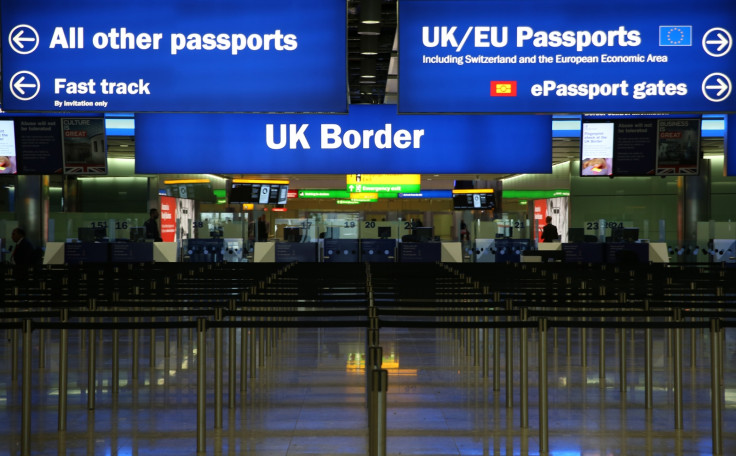UK immigration: Backdoor into Britain still open as £1bn pumps into e-Borders white elephant

The Home Office has been criticised for its "poor management and a worrying complacency" over a delayed scheme to collect data from people entering and leaving the UK. Despite assertions that 100% of passports are checked, the department does not have figures or even estimates on the number of people who enter Britain via unchecked routes.
The data collection initiative, initially called 'e-Borders', is a programme which the Public Accounts Committee described as being vital to Britain's national security. MPs have warned that current projections estimate its completion by 2019, eight years late, and at a cost more than £1bn (€1.29bn, $1.41bn).
The reports states the department is not able to check 100% of passports at the border as there are a number of unchecked routes. People entering the UK via land or sea from the Republic of Ireland, or all those entering via smaller craft (known as general aviation and general maritime routes) do not have their passports checked.
The report states: "The nature of the UK border is such that we cannot expect 100% of passports to be checked, but the Department does not estimate the percentage of unchecked passports to determine what risks these pose nor does it adequately measure the quality of the data it holds on individuals travelling to the UK and on those of interest to the UK government."
e-Borders
The UK government started to collect and analyse the data in 2003 and major US defence contractor Raytheon won a contract in 2007 to deliver an 'e-Boarders' scheme. The Coalition Government cancelled the contract in 2010 and successor programmes, including the Border Systems Programme and Digital Services at the Border, were introduced.

Labour MP Meg Hillier, the chair of the Public Accounts Committee, described the Home Office and the now defunct UK Border Agency's handling of the project as poor.
"It is accepted that successful completion of this project is essential to the security of our international borders. Yet the original target date has long passed and we are still at least three years away from delivery. The stop, start approach has cost the taxpayer dear," Hillier said.
"I am careful to say 'at least' three years from delivery because we are not convinced warnings about the progress of this project have been treated with sufficient gravity, nor that sufficient action has been taken to prevent a repeat of past problems.
"Some of these are depressingly familiar to this Committee, not least the damaging effects of disjointed leadership and weaknesses in the handling of data. We have also seen another poorly-conceived commercial partnership end in expensive failure.
She added: "If the Home Office is to complete this project before the decade is out then it must get its house in order now—starting by setting out exactly what it expects to achieve this year, and who will be held to account for it."
The Public Accounts Committee has urged the Home Office, among other things, to set out what it expects to deliver in 2016 and who will be responsible for the project. The group of MPs also recommended that the ministry should outline what data it needs to manage the UK border effectively.
A spokesperson for the Home Office said: ""Protecting the border is our top priority and we are investing heavily in our systems to tackle the threat from terrorism, organised crime and illegal immigration.
"Every passenger crossing our control points into the UK is checked against a range of watch-lists and the UK passport is among the most secure in the world.
"When the e-borders contract ended in 2010 we took immediate steps to stabilise and modernise crucial but old-fashioned systems.
"This included a £23m investment in new Warnings Index technology, which is now operating at a higher level than ever before. This has always been a challenging and ambitious programme of work but we remain committed to delivering the improvements that are needed.
"We are considering the findings of the Public Accounts Committee and will respond to its report in due course."
© Copyright IBTimes 2025. All rights reserved.






















